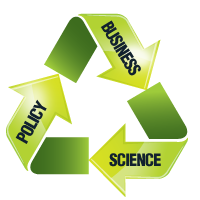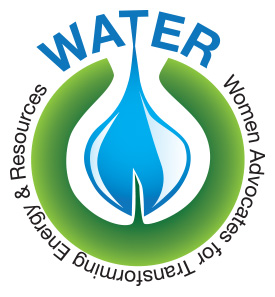 WATER Newsletter
WATER Newsletter
April 19, 2017
WATER will march 4/22/17 in Tribeca, NYC and 4/29/17 in Washington DC at the Climate Marches – we will speak out to give voice to those that do not have a voice in the international or domestic policy discussions on climate change. We are fortunate to have the resources to be able to join together in our policy advocacy – we will push President Donald J. Trump to stay in the Paris Agreement and also provide funding for mitigation and adaptation – particularly we support clean tax cuts and increased development loan monies for climate adaptation.
Our New Videos:
Sonali P. Chitre explains her journey:
Justin Kamine, Sophie Robinson, and Sonali P. Chitre, 3 millennial climate change and clean tech advocates, discuss their message to President Trump before Earth Day 4/22/17. #StrongerTogetherForClimateResilience
ENVIRONMENTAL JUSTICE – CLIMATE JUSTICE
BY SONALI P. CHITRE
Environmental Justice is the concept that environmental pollution disproportionately affects the vulnerable in society that often do not contribute to the problem directly — women, children, the old — and this pollution, from landfills, incinerators, chemical plants, or polluting factories, is often deliberately placed into low income and minority areas, without the communities that are forced to bear the harm having a role in the decision-making process.
No example illustrates the harm of environmental justice more than climate change — the mother of all collective action problems, also a game theoretic problem and prisoner’s dilemma — because when some countries, such as the US or Russia, fail to act to curb their GHG emissions, then other countries have less incentive to act. The issue is that nations such as Brazil, India, and China, are still considered developing countries, although they are experiencing rapid economic growth and have many affluent people. Thus, these countries insist that they must still be allowed to emit GHGs in order to develop and fully industrialize. Also, the per capita emissions are relatively low in these countries, although it can be argued that controlling population growth is another issue that should be dealt with through proper access to family planning and education. The affluent in these countries are often the biggest hurdle — because their corruption often stalls foreign aid and investment from reaching the poor who really need it.
The Indian flag, the Bharat Chakra surrounded by the national colors, blows in smoggy wind.
Climate change impacts, such as coastal erosion, rising sea levels, global warming, drought and desertification, and the harms from increased severity and frequency of extreme weather events has a disproportionately large impact on poor and minority communities around the world — those with the least resources to adapt and build resilience. Therefore, from the perspective of corrective and redistributive justice, the cost of adaptation should be borne by those who have committed the harm — those with the most resources who have also historically been the major emitters who have caused the 400 ppm of GHG in the atmosphere. This is not just the Global North countries, or the developed countries, but those people in the top 0.1% economically who have essentially managed to hoard most of the world’s resources, natural and otherwise.
Women, children, the old, but also the poor are the first and worst impacted by climate change. Small islands, such as Tuvalu, Kiribati, are already losing land mass, which is a threat to their territorial integrity (along with self-governance, these are the two aspects to sovereignty itself), although their emissions and their GDP are low. Many people in the US, in Louisiana and New York, for example, died or lost their homes and livelihoods after Hurricane Katrina and Hurricane Sandy respectively, two storms which research shows were exacerbated by climate change.
The US EPA defines Environmental Justice is the fair treatment and meaningful involvement of all people regardless of race, color, national origin, or income, with respect to the development, implementation, and enforcement of environmental laws, regulations, and policies. This should apply not just to communities in the US, but all over the world. Also, those in the US that are suffering from the adverse effects of pollution must stand in solidarity with those around the world who are being impacted first and worst by climate change.
Indian woman struggles to navigate a trash filed waterway.
This means that we must support those who need to build resilience by funding groundbreaking technologies that will allow the bottom 2 Billion people in the world to leapfrog over old dirty carbon based systems and have access to electricity, sanitation, health care, and education. Simultaneously those of us with the most resources must live more Gandhian lifestyles — changing patterns of production and consumption and being more climate conscious in our behaviors — avoiding factory farmed meat, refusing to buy electronics or jewelry that contains slave labor in its supply chain, and endorsing products and services that come from more thoughtful and sustainably oriented companies. Divestment is not just about what the big pension funds must do — each of us must have a divestment strategy. This is the only way to create true sustainable development that embodies inclusive growth for all.
RACING TO RENEWABLE
BY SAFA ANSARI
With news of the new U.S. Presidential Executive Order, signed in late March 2017, nullifying significant climate change policies and reviving the coal industry, it is easy to feel like the global community is shifting backwards in its efforts to combat climate change. In spite of the tremendous work humanity faces in shifting ourselves towards a sustainable future, there are various countries and leaders who understand the immense impact and immediacy of global climate change. In fact, a new race to be the first may have been born.
Throughout history, our world has seen many global competitions from the Olympics, the nuclear arms race, and the race to be the first country to land on the moon. Significant national pride and global recognition is awarded to countries who innovate by finding solutions to problems and challenges collectively faced by humanity. Within developed nations, it is apparent that green technology, corporate sustainability, and efforts to reduce our carbon footprint have become fashionable and marketable. What people may not realize is that combating global climate change is not only en vogue for corporate entities and individuals in developed countries, but also for all types of governmental, state, and city actors. The race to become the first country to run on 100 percent renewable energy is well under way.
The International Renewable Energy Agency (IRENA) reported that, for over a decade, global investment in renewables has shown steady growth, rising from less than 50 billion U.S. dollars in 2004 to a record 348 billion dollars in 2015. And in 2015, for the first time, developing countries attracted the majority of renewable energy investments, with China accounting for about one-third of the global total. Further, IRENA reported that nearly 150 countries have enacted policies to stimulate investment in renewable energy technology with many countries looking to partner with an increasingly active private sector.
Sweden, a northern European country of over 10 million, has taken ambitious steps towards energy sustainability. In 2012, Sweden reached its goal of a 50 percent renewable energy share ahead of its 2020 schedule. Sweden currently holds the highest percent renewable energy figure in the European Union (EU) at 52 percent and ultimately aims to be carbon neutral by 2050. Few countries consume more energy per capita than Sweden. However, Sweden uses nuclear and hydroelectric power for 83 percent of its electricity production and employs cogeneration from combined heat and power plants and wind power for another 17 percent of its electricity output. As a result of these efforts, the average Swede releases 4.25 tons of carbon dioxide per year into the atmosphere, compared to 6.91 tons for citizens of the EU and 16.15 tons for Americans.
In contrast, Costa Rica is a developing Central American country of 4.9 million people covering approximately 19,700 square miles. In 2016, Costa Rica ran on 100 percent renewable energy for more than 250 days. The Costa Rican Electricity Institute reported that 98.1 percent of Costa Rica’s electricity for 2016 was supplied by renewable sources with most of its power generation from large hydropower facilities. These facilities utilize multiple rivers and heavy seasonal rainfall. Costa Rica also plans to continue swiftly towards its goal of carbon neutrality and 100% renewable energy consumption.
All over the world, various kinds of countries, whether big, small, developing, or developed, have implemented significant solutions to decrease their dependence on fossil fuels while simultaneously meeting their economic, social, and governmental goals, which often align with the Sustainable Development Goals (SGDs). These countries’ advancements should serve as a model for governments around the world that are struggling to implement actionable solutions amidst evolving climate and energy demands.
CLIMATE CHANGE IN ICELAND – CHANGING GLACIERS AND WATERWAYS
FANNEY HRAFNSDÓTTIR
“New year, new opportunities” may sound like a cliché, but it is exactly how we need to think about solutions regarding the Earth’s increasing temperatures. In the very first days of 2017, I decided to watch an episode about the Arctic and Antarctic from the 90´s documentary TV series Eyewitness, produced by BBC Worldwide Americas. Needless to say, in line with the rapid changes in the climate, a lot has changed about the Arctic since this particular episode was published in 1996, around 20 years ago. One of the main tourist attractions in Iceland is the lagoon Jökulsárlón, which is famous for its floating icebergs that break off a glacier behind it. Recently it has been discovered, after the glacier shrank tremendously, that there is actually a 25 km long fjord under it. The lagoon has risen to extreme levels and, in addition to being the deepest lagoon in Iceland, it is estimated to reach into this newly found fjord and to have become greater in size.
The glacier and the lagoon in 1984 (photo from www.visir.is)
The glacier and the lagoon in 2016 (photo from www.visir.is)
A lot of rivers in Iceland have also been flooding over their bunkers and ruining large parts of the soil on farmers’ lands. On Christmas Eve 2016, the main Icelandic weather research institution in the Veðurstofa Íslands released an article about the temperature in the Arctic being 20 degrees Celsius higher than on that day historically. It was stated that scientists are absolutely convinced that such climate change impacts are caused by humans. Regardless of research methods used, the outcome is always the same: sadly, human beings are to blame for the situation.
So, what is it that we can do?
Even though Iceland’s ecological footprint as far as per capita emissions is large, there are a lot of positive things that Icelanders can and already do to make change in the world to battle against climate change. Geothermal heating and energy, as well as soil conservation, are huge professions in Iceland, and according to the Permanent Mission of Iceland to the United Nations, one of the four main things that the Mission seeks to export in the form of knowledge from Iceland to the world. It makes me proud to state that the Mission even has special UN schools in Iceland, both for geothermal energy and soil conservation. Further development of technical skills in order to help other countries with implementing renewable energy is critical, just as it is necessary to do everything possible to keep policies in home affairs aimed towards sustainability.
(Photo from my personal collection, 2015)
A reindeer near the highway in Iceland, which is unusual. Normally they keep to the highlands, and the numbers of reindeers have dropped over the last decades due to harsh conditions. Most of them keep to the north-east part of Iceland, close to the lagoon mentioned above.
PUERTO RICO ENVIRONMENTAL IMPACTS AND POLITICAL SOLUTIONS
BY PAULA LANDRON
Like most of the Caribbean islands, Puerto Rico is in a vulnerable location due to tropical storms and sea-level rise affected by climate change. Although the island has a chain of mountains in its center, most of the populous cities and vital infrastructure, such thermoelectric plants, the main airport, and hospitals, are on the coast. Nearly two and a half of the three and a half million (56%) of people that consider Puerto Rico their home, as well as the three and a half billion-dollar tourism industry, are located in these vulnerable areas. Old San Juan, Condado, and Isla Verde, the main tourist spots, are at risk for sea level rise that poses a serious threat to the economic development of the 72-billion-dollar debt-stricken country. Puerto Rico’s diameter is 100 x 35 miles long, giving it one of the highest population densities in the world.
Additionally, the water surrounding the island has warmed nearly two degrees since the beginning of the 20th century, making this water one of the hottest sections of ocean in the Caribbean Sea. The projections for the end of the century estimate it could rise to 5 degrees Fahrenheit, which would make Puerto Rico the warmest among the US territories. The increased warmth of the ocean creates the perfect breeding ground for stronger hurricanes; from 1984 to 2012, wind speeds in hurricanes have increased by 3mph. Puerto Rico has been blessed because strong hurricanes seem to evade the island, however, I cannot help but wonder what will happen if a strong hurricane does come?
Floods are quite typical in Puerto Rico due to lack of effective construction. The island’s infrastructure cannot handle large quantities of water and rising sea levels. Due to rapid urbanization of metropolitan areas, thousands of trees have been cut down, which further intensifies flooding. Since soil has been replaced with concrete, the water continues to stream inward, rather than being absorbed by the soil. Given that climate change will reduce the frequency of rain but will increase the intensity of rainfall, it increases the risk of floods. On the west coast of the island sea level rise is wearing away the shoreline at a rate of three feet per year. When hurricanes come, people who live along the coast will not have a protective barrier against strong currents that will come inland. Sea level rose almost four inches relative to Puerto Rico’s shoreline since 1960 and it is likely to rise one to three feet within the next century.
What measures is the government enacting to combat the effects of sea level rise? The Puerto Rican Climate Change Council created a comprehensive report in 2010. However, since then, not much attention has been directed towards this pressing issue because the government is working towards reducing the island’s economic debt. In my opinion, due to Puerto Rico’s legal standing as a US colony, colonizers have created a Fiscal Control Board to oversee and administer the financial crisis. Essential institutions such as the University of Puerto Rico might see federal funding cuts of 450 million dollars, a measure that would shut the system down completely. To counteract the effects of sea level rise, we must protect or accommodate vulnerable municipalities to guarantee the conservation of essential infrastructure. However, if the Board is planning on cutting University funds, how is the island supposed to stay afloat when the most important system of higher education is on the verge of collapse? How will future generations have the necessary training and degrees to solve the most pressing issue of our times?
WATER Contributors
Sonali P. Chitre
Founder and Executive Director
Sonali P. Chitre, Founder of WATER, is a climate change advocate and clean tech spokesperson. As a lawyer and strategic consultant, she has worked for over 5 years to bring green technologies and the creative financial solutions that enable them into India, the Middle East, and Africa. In 2013, she decided to start training millennial and teen women to become the next leaders of the climate change and new energy movement by teaching them policy advocacy, research, writing, lobbying, coalition building, and entrepreneurship. WATER’s members include diverse young women pursuing law, policy, business, strategy, science, and technology. WATER is always ready to accept new members to build a legion of climate change warriors.
Safa Ansari
Safa Ansari is a lawyer licensed to practice in the State of New York. She received her J.D. from Boston University School of Law where she concentrated in health law and took a particular interest in South Asian American community development in the legal arena. Currently, Safa resides in Washington, D.C. and works as a healthcare compliance manager for a nationwide clinical laboratory. Recently, Safa has become increasingly passionate about and involved in the global climate change space.
Fanney Hrafnsdóttir
Fanney Hrafnsdóttir was born and raised in Reykjavík, Iceland. She is an undergraduate student in Political Science at the University of Iceland. Her interests lie in environmental issues and climate change, human resources, and politics. In 2014 and 2015 she volunteered at the Arctic Circle assembly in Reykjavík as a contact person for British delegations, and in 2016 she did an internship for the Arctic Circle with Chairman Mr. Grímsson. She also interned for Member of British Parliament James Grey in Westminster in 2015.
Paula Landron
Paula, originally from Puerto Rico, is currently pursuing her Bachelors in Psychology at the University of Miami in South Florida. Her interests range from learning new languages, motivating peers in her self-created fitness class, to meditation. She is passionate about her country’s current political status and educating others on the matter of climate change.
 WATER Newsletter
WATER Newsletter
Mar 16, 2017
Sonali Chitre, Founder of WATER and PSC, will be speaking at the People’s Climate March on Washington DC 4/29/17. Please stay tuned to get involved with various events and outreach.
ICELAND AND INDIA
BY SONALI P. CHITRE
In early October 2016, I helped to lead a delegation of US companies and foundations through the NEXUS Climate Change Working Group to the Arctic Circle Summit in Reykjavik, Iceland. There we met with Former President Grimsson, the Minister of Education Science & Culture, the Minister of Environment, and the Minister of Innovation.
Currently 85% of Iceland’s primary energy supply is from renewable energy sources. However, Iceland’s per capita emissions compared to India’s per capita emissions come in at a ratio of 14:1, which must give us pause in considering the high carbon lifestyles of some western countries, which also must be a factor in the climate negotiations.
> READ MORE
CHINA AND CLIMATE CHANGE
BY THERESA McCARTY
A lot has happened over 2015-16, including the adoption of the Sustainable Development Goals (SDGs) by governments as well as the signing of the Paris Agreement on climate change. The world has seen expectations change from mobilization and momentum building to a focus on execution and delivery in 2016. Businesses worldwide are expected to scale up investments in the transition toward low-carbon economies and a sustainable future.
> READ MORE
WATER Contributors

Sonali P. Chitre
Founder and Executive Director
In 2013, Ms. Chitre founded Women Advocates for Transforming Energy & Resources (WATER) to bring together diverse young women leaders across law and policy, science and technology, and business and strategy who care deeply about building a sustainable and clean future. WATER is focused on aggregating and analyzing information on climate change and energy across the globe, providing policy recommendations to world leaders, advocating for greater participation and empowerment of women and girls, and training the next generation of climate leaders.
Ms. Chitre is a social entrepreneur, lawyer, and business consultant. She has worked with many governmental bodies, NGOs, and private sector organizations, such as the United Nations, the US EPA, Natural Resources Defense Council, Clean Water Action, Alphabet Energy, and Lance Capital. Ms. Chitre holds a Bachelor of Arts, cum laude, from American University, and a Juris Doctor from Emory University School of Law. She is admitted to the State Bar of New York.
Ms. Chitre founded Priyamvada Sustainability Consulting LLC (PSC) in 2012, a global consulting firm based in New York City focused on deploying green solutions in the energy, waste management, infrastructure, and transportation sectors. Ms. Chitre also researches climate change, sustainable development, energy, and oceans, providing thought leadership and advocacy as a speaker, writer, blogger, and activist.
Theresa McCarty is a dual MEM/MBA candidate at Yale University. Prior to graduate school, Theresa focused her efforts on corporate strategy and government regulations that maximize cost effective energy efficiency and sustainability measures in relevant markets. She enjoys traveling, has lived on 4 continents, and speaks 5 languages.
 WATER Newsletter
WATER Newsletter
Nov. 7, 2016
Our focus with Women Advocates for Transforming Energy & Resources (WATER) is to bring together young women leaders who care deeply about climate change and clean energy across several disciplines: law and policy, science and technology, and business and strategy. WATER is focused on aggregating and analyzing information on climate change and energy across the globe, providing policy recommendations to world leaders, advocating for greater participation and empowerment of women and girls, and training the next generation of climate leaders. We are attending UNFCCC COP-22 in Marrakech, Morocco where we are launching our first official WATER newsletter. Thank you for reading and please contact us if you have follow up questions or comments.
OVERVIEW OF COP-22
United Nations Framework Convention on Climate Change (UNFCCC) 22nd Conference of the Parties (COP-22) is taking place in Marrakech, Morocco from Nov. 7-18, 2016. COP-22 has been dubbed “the COP of implementation” and the “COP of Africa.”
177 countries have ratified the Paris Agreement as of June 21, 2016, including the United States and India. This is also significant in the context of the UN Sustainable Development Goals (SDGs), which have replaced the Millennium Development Goals (MDGs) as of 2015. Of the 17 goals, Goal 13 is “Climate Action.”
This is the first time there will be a Low Emissions Technical Solutions Conference by the Sustainable Development Solutions Network at a COP, integrating the SDGs with the climate negotiations. This provides incredible opportunities for harmonization and increased commitments across all sectors with respect to combatting climate change, the ultimate indicator of unsustainable development.
Since climate change is a global calamity, the world must take mitigation actions which use technology and innovation as effective tools for the global public good. Climate justice is the concept of securing the future of the poor from the effects of natural disasters exacerbated by climate change, and climate change itself is largely the fault of industrialized nations. Thus people in developed countries must not only modify their behavior and lifestyles, but those in developing countries must adopt clean technology products and services to leapfrog over carbon unfriendly systems. We believe that the greatest share of funding and technological capacity building for the benefit of the bottom 2 billion people around the world living in poverty and without access to electricity and other resources, such as food and water, must be contributed by developed countries. Thus we will all be able to build true intergenerational equity, which is at the heart of sustainable development, and live within our planetary boundaries.
>> DOWNLOAD PDF VERSION OF NEWSLETTER
Articles
A CALL TO ACTION
BY SAVANNAH G. MILLER
CLIMATE CHANGE IN THE ARCTIC
BY FANNEY HRAFNSDÓTTIR
INDONESIA AND THE CHALLENGES OF ITS BIODIESEL INDUSTRY
BY ANJA AUNE SELMER
INDIA AS THE VOICE FOR DEVELOPING COUNTRIES AND AS AN ENERGY & CLIMATE LEADER
BY SONALI P. CHITRE
WATER Contributors

Sonali P. Chitre
Founder and Executive Director
In 2013, Ms. Chitre founded Women Advocates for Transforming Energy & Resources (WATER) to bring together diverse young women leaders across law and policy, science and technology, and business and strategy who care deeply about building a sustainable and clean future. WATER is focused on aggregating and analyzing information on climate change and energy across the globe, providing policy recommendations to world leaders, advocating for greater participation and empowerment of women and girls, and training the next generation of climate leaders.
Ms. Chitre is a social entrepreneur, lawyer, and business consultant. She has worked with many governmental bodies, NGOs, and private sector organizations, such as the United Nations, the US EPA, Natural Resources Defense Council, Clean Water Action, Alphabet Energy, and Lance Capital. Ms. Chitre holds a Bachelor of Arts, cum laude, from American University, and a Juris Doctor from Emory University School of Law. She is admitted to the State Bar of New York.
Ms. Chitre founded Priyamvada Sustainability Consulting LLC (PSC) in 2012, a global consulting firm based in New York City focused on deploying green solutions in the energy, waste management, infrastructure, and transportation sectors. Ms. Chitre also researches climate change, sustainable development, energy, and oceans, providing thought leadership and advocacy as a speaker, writer, blogger, and activist.

Savannah Miller
Senior Policy Expert
Savannah Miller is an environmental advocate looking to make a difference through communication, collaboration and policy. As founder of the web domain www.sustainable-directions.com, Savannah intends to engage her generation in climate change science through what she calls the “millennial environmental literacy project.” Her content is largely pulled from her fieldwork in Sub-Saharan Africa, Peruvian Amazon and, most recently, Antarctica with the 2041 Foundation. In addition, Savannah is currently pursuing her Masters in Public Administration within environmental sciences and policy at Columbia University’s School of International and Public Affairs and The Earth Institute. Savannah holds a dual degree in environmental sciences and creative writing from Emory University.
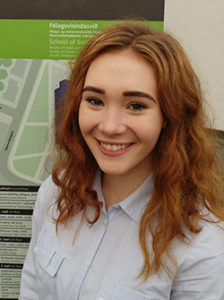
Fanney Hrafnsdóttir
Representative of Iceland
Fanney Hrafnsdóttir was born and raised in Reykjavík, Iceland. She is an undergraduate student in Political Science at the University of Iceland. Her interests lie in environmental issues and climate change, human resources, and politics. In 2014 and 2015 she volun- teered at the Arctic Circle assembly in Reykjavík as a contact person for British delegations, and in 2016 she did an internship for the Arctic Circle with Chairman Mr. Grímsson. She also interned for Member of British Parliament James Grey in Westminster in 2015.

Anja A. Selmer
Representative of the Netherlands
Anja Aune Selmer, originally from Stavanger, Norway, is currently studying at the University of Maastricht in the Netherlands. From an early age, she has been active in various organisations concerning human rights and environmental issues, such as the Red Cross Youth, Nature and Youth, and Amnesty International. In her work, she has focused mainly on immigration, local climate protection, textile waste management, and sustainable textiles.
In addition to her studies, Ms. Selmer runs the webpage ecosteme.com. She believes it is essential to address climate change and improvement of overarching structures that hamper ecological growth in order to achieve greater social justice.

 (202) 460-2229
(202) 460-2229
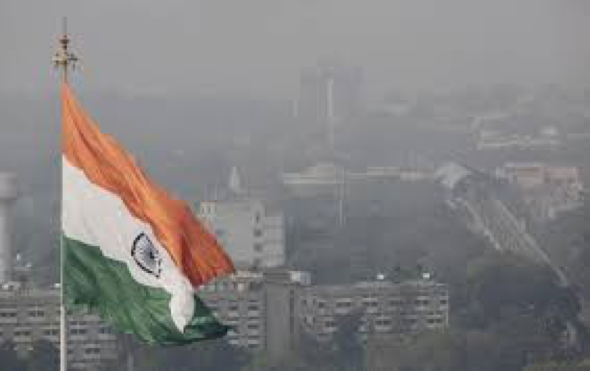
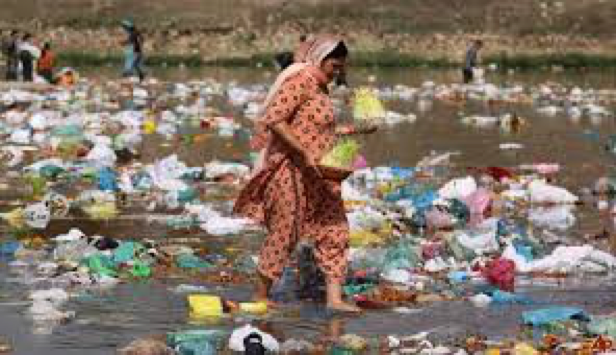
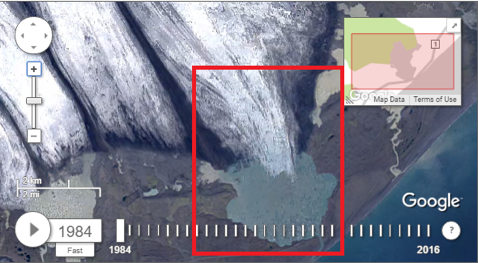
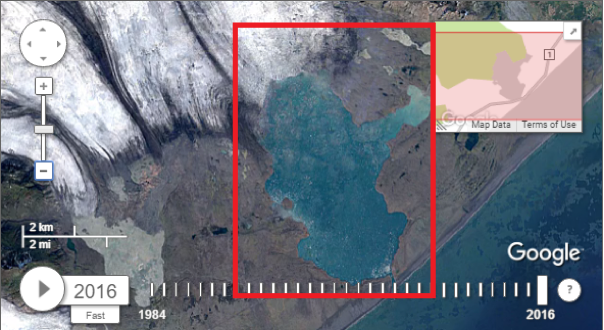

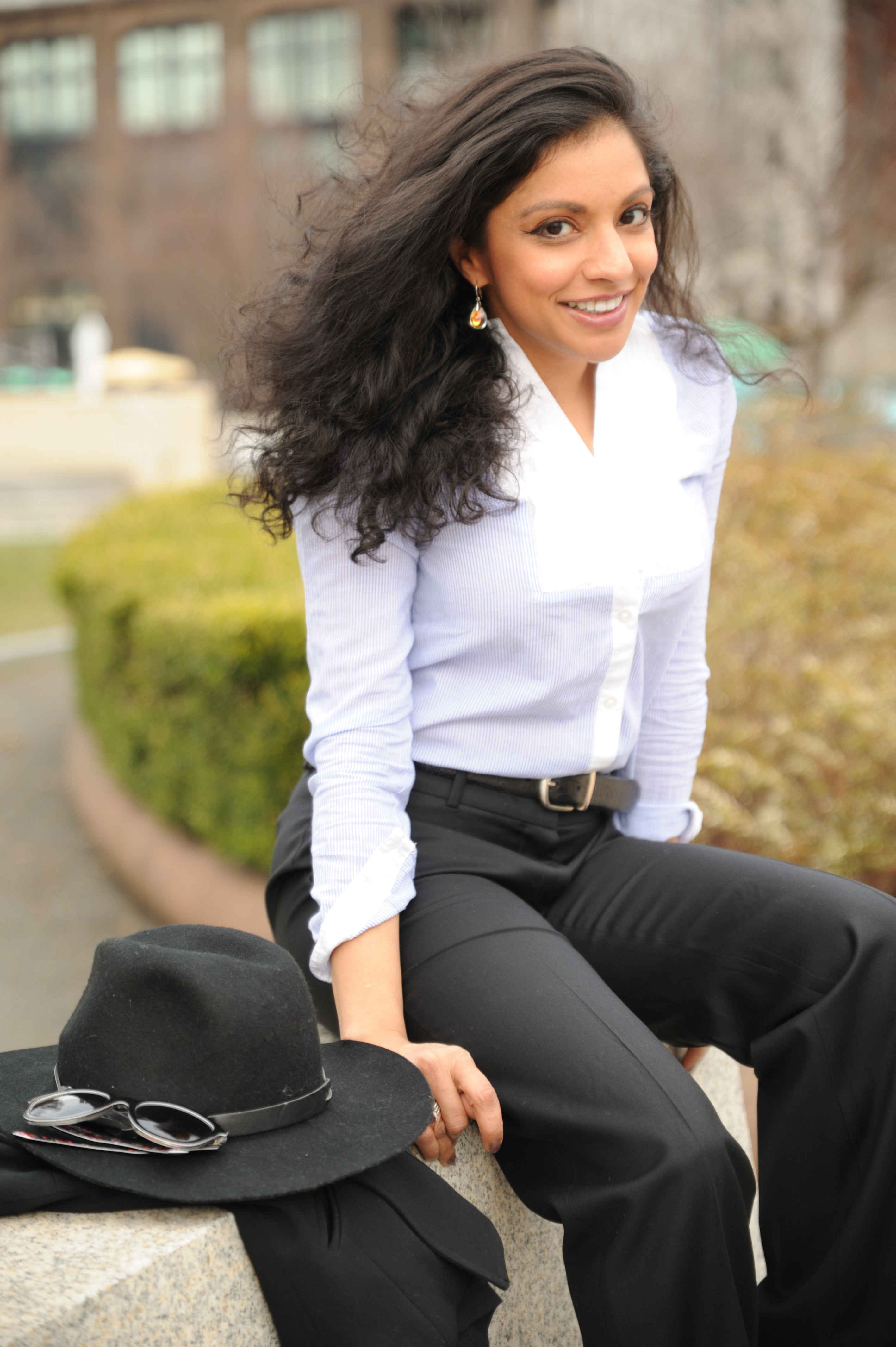


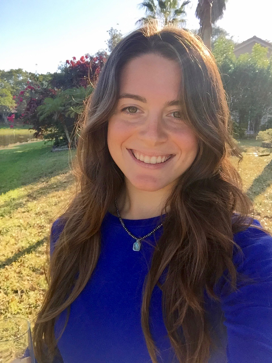
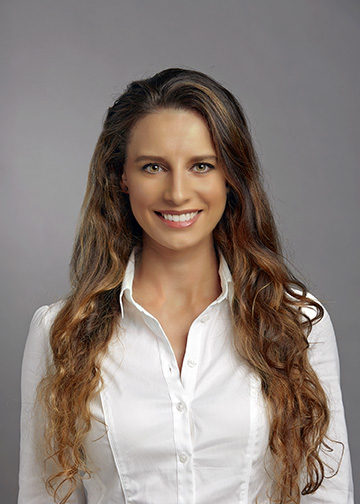
 Join Us On Facebook
Join Us On Facebook Join Us On Twitter
Join Us On Twitter Join Us On In.com
Join Us On In.com Subscribe to Our Blog
Subscribe to Our Blog